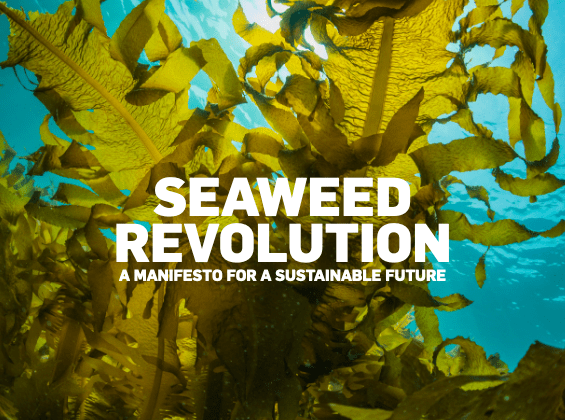- Consumer safety – Ensuring seaweed products meet commonly agreed safety standards for use by consumers
- Environmental safety – Ensuring seaweed production and processing takes place in harmony with ecosystems and safeguards the health of local people
- Operational safety – Ensuring the welfare of workers is protected at every stage of the seaweed value chain
- Establishing and improving global standards and regulations for safe operation and production of seaweed (for final products, environments and workers)
- Increasing public education/consumer awareness
- Generating investment in scalable production initiatives, particularly in developing economies.
- Enhancing greater collaboration between manufacturers, regulators, academia. IGOs, NGOs and industry, leading to an improved, safe and better developed global seaweed market.
ABOUT THE SAFE SEAWEED COALITION
Building…
Developing…
Supporting a safer seaweed industry.
Follow us: #SeaweedRevolution #SafeSeaweedCoalition
Our Mission
The seaweed industry is on the cusp of a transformational moment. Twelve thousand years of agriculture has left little space on land to meet the needs of a growing population. In our oceans, the combined pressure of global warming, pollution and over exploitation has left ecosystems in desperate need of repair.
Hunger. Poverty. The climate crisis. Seaweed can help humanity face up to the seemingly intractable challenges of our time, while unlocking an inclusive source of income for communities around the world.
For generations, seaweed has remained one of the great untapped resources. But a revolution is coming. In a year of landmark environmental summits, the rise of stakeholder capitalism and commitments to a green recovery, the convergence of global issues, increased awareness of seaweed’s potential and an influx of investment is igniting a period of accelerated growth. But unprecedented demand brings urgent challenges. From every part of the globe and every stage of the value chain, a connected industry is needed to unlock the economic, social, and environmental benefits of this unique resource.
To achieve this, a new platform is needed that, for the first time, bringing together the full spectrum of seaweed’s diverse stakeholders. We believe collaboration on safety will provide the seaweed industry with the resilient foundation it needs to responsibly scale and deliver on the United Nations’ Sustainable Development Goals.
Our objectives focus on three key aspects of safety:
The Coalition will be led by a Steering Committee:
Join the Seaweed Revolution and the first ever Global Seaweed Coalition gathering all seaweed stakeholders. The Safe Seaweed Coalition addresses some of the Manifesto call to actions and coalitions objectives are:
Name |
Country |
Activity |
Contact |
CNRS |
France |
Academic |
Philippe Potin |
SINTEF |
Norway |
Aquaculture Engineering |
Jorunn Skjermo |
United Nations Global Compact |
UN |
Institution |
Vincent Doumeizel |
FAO |
UN |
Institution |
Junning Cai |
GEF |
International |
Finance |
Steffen Cole |
Rikken Food |
Japan |
Seaweed producer & processor |
Yoichi Sato |
Tanzania Seaweed Cluster & University |
Tanzania |
Academic |
Flower Msuya |
Nestlé |
Switzerland |
Buyer/Food |
Suzan Kevork |
SAMS |
UK |
Academic |
Elizabeth Cottier-Cook |
LR Foundation |
UK |
Foundation |
Tim Slingsby |
Seagrant / Seaaweed Hub |
USA |
Institution |
Anouchka Conception |
Australian Seaweed Institute |
Australia |
Institution |
Jo Kelly |
WWF |
USA |
NGO |
Paul Dobbins |

SEAWEED REVOLUTION: A MANIFESTO FOR A SUSTAINABLE FUTURE
This manifesto outlines the opportunities and barriers ahead of us. If we get this right, we are at the start of a great journey together in sustainably harvesting the potential of our largest common good - the ocean.
Seaweed Manifesto
This 2020 meeting brought together a selected group of innovative seaweed businesses, projects and entrepreneurs with top decision-makers from the UN and other leading international institutions and organizations. It showcased the many ways the ambitions and initiatives of the Seaweed Manifesto are being driven forward across the world.
© Financial Times Live
FT Live and its journalism are subject to a self-regulation regime under the FT Editorial Code of Practice